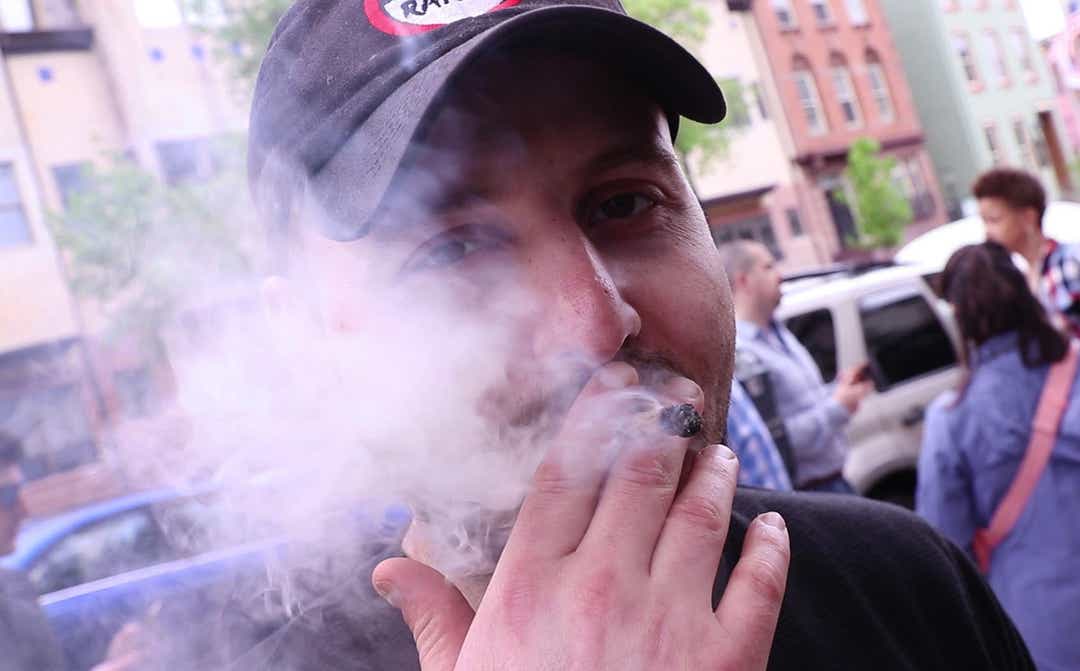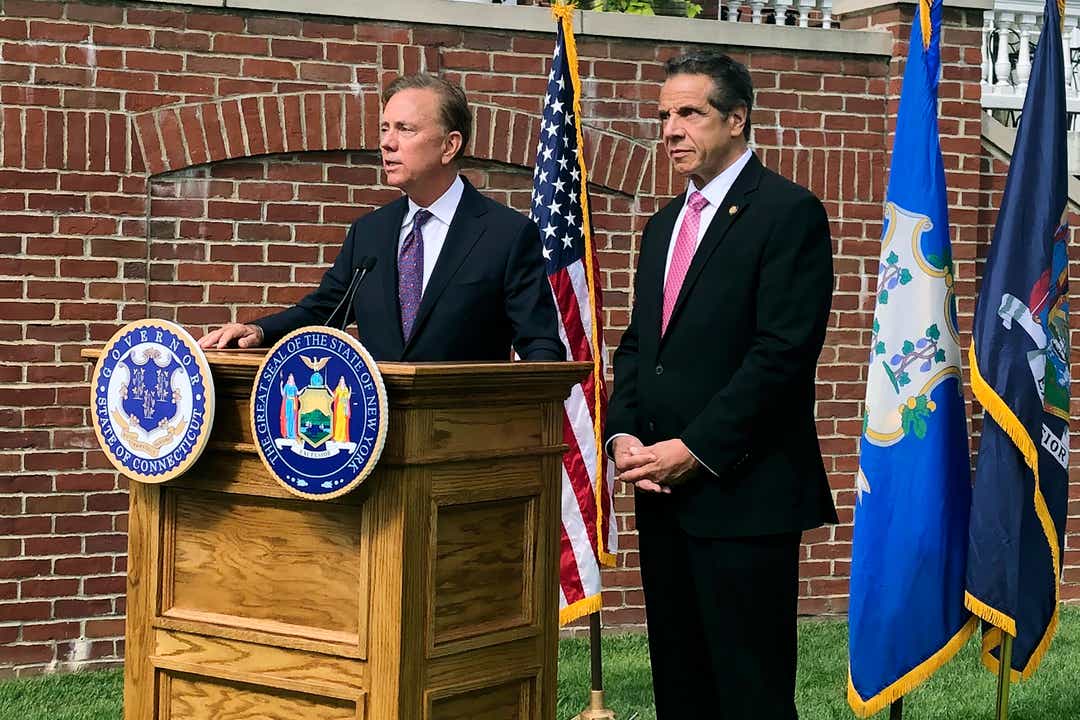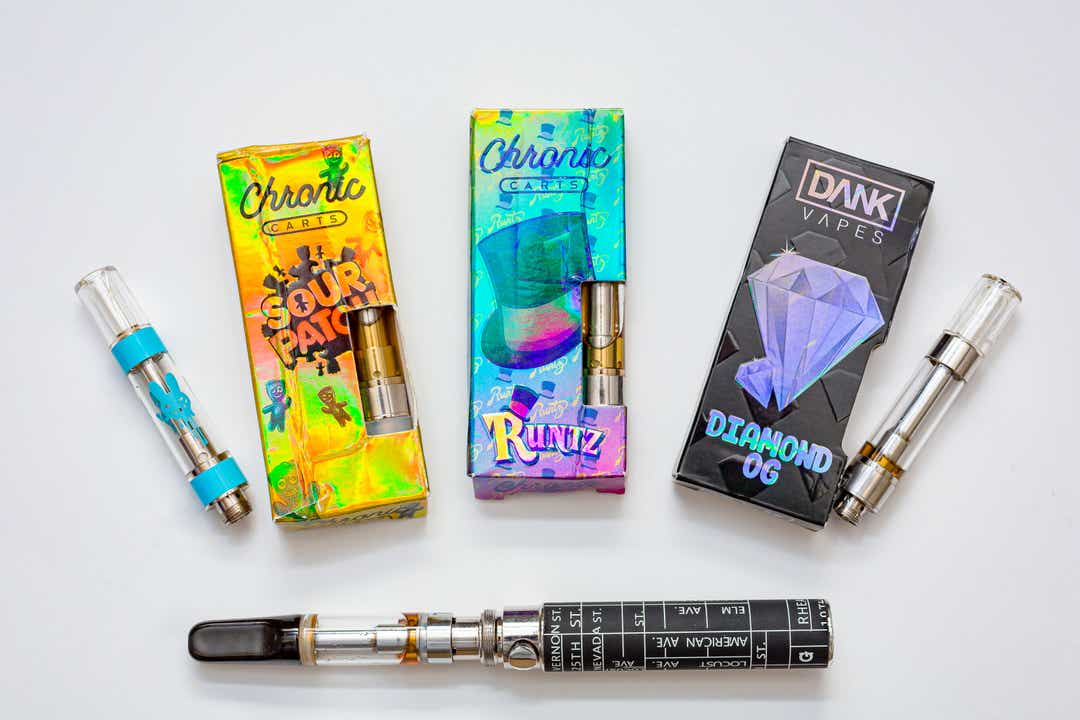Amid thousands of lung injuries tied to marijuana vaping and mounting state budget gaps, lawmakers and advocates are bracing for a political brawl over legalizing cannabis use for adults in 2020, after a similar bid failed earlier this year.
Some doctors, parents and anti-marijuana groups suggested the outbreak of vaping-related illnesses this year underscored cannabis risks, adding to their long-standing concerns about legal weed fueling drugged driving and youth marijuana use.

Marijuana supporters, however, noted many of the lung illnesses have been linked to black-market vaping products and asserted it is a reason to create a tightly regulated legal cannabis marketplace.
“We really want to make sure we’re putting illegal markets out of business,” said state Sen. Liz Krueger, D-Manhattan, who has championed New York’s legal weed bill.
“We don’t want people buying products in back alleys before they’re of age; or if they don’t know what is in it, or if it’s brought in by dangerous cartels.”
Further, the upcoming political fight over a $6 billion state budget gap threatens to overshadow many other issues during the next Legislature session that begins in January.
“It depends on how much of a priority this (marijuana bill) is for leadership in both houses of the Legislature and how much of a priority is this of the governor,” said state Sen. Peter Harckham, D-South Salem, one of the key lawmakers who derailed legal weed this year.
“The budget looks like it is going to be very ugly.”
Growing support for marijuana in NY
Central to New York’s pot legalization reboot is mounting public support as two-thirds of Americans now say the use of marijuana should be legal, according to a new Pew Research Center survey.The share of U.S. adults who oppose legalization has fallen from 52% in 2010 to 32% today, a trend closely mirrored in New York, where opposition stood at 36% according to a recent Siena College poll.
A small majority of New Yorkers, 52%, agree that marijuana is basically the same as alcohol and should be treated the same, the poll found.
New York legalized medical marijuana in 2014, and the program now has about 111,000 patients and 2,600 prescribers.
Meanwhile, New York this month expanded its oversight over the legal hemp industry, which has been booming because of the growth in sales of products with CBD oil.
A coalition of 40 pro-marijuana groups has also urged Gov. Andrew Cuomo to hold new listening sessions to better inform the legalization debate, citing potential repercussions in communities hit hardest by racially biased enforcement of marijuana laws.
The proposed meeting sites include cities with the highest numbers of marijuana arrests in upstate New York, such as Rochester and Syracuse, as well as the lower Hudson Valley, such as Mount Vernon, White Plains and Yonkers, according to a Dec. 2 letter to Cuomo.
“Given New York’s history of draconian enforcement, we must be bold and innovative in creating justice and equity within marijuana legalization,” the letter stated.
The coalition includes state and national groups focused on civil rights, legal aid, agriculture and legal marijuana policy.
More: What to know about marijuana arrests, racial bias
Marijuana decriminalization in NY already approved
Legal weed opponents, however, contend New York addressed criminal justice failures when lawmakers in June decriminalized possession of small amounts of pot and expunged prior convictions.“Once that decriminalization, which was the right thing to do, was off the table, now that leaves you with all the harmful effects of marijuana in our schools and on our children,” said Kyle Belokopitsky, executive director of the state Parent Teacher Association.
Yet some marijuana supporters asserted decriminalization didn't go far enough to address societal damage of racial bias. Krueger, for instance, said portions of legal weed tax revenue should “go in various ways back to the communities that were done the most harm by having a prohibition model of marijuana enforcement that resulted in large numbers of black and brown people getting criminal records.”
Still, some marijuana opponents suggested approving legal weed might be about resolving state budget problems through the additional revenue it would bring in, rather than improving upon decriminalization. “The real driving force for this in New York is we’re looking at this sizable budget deficit, so they’re scrambling around looking for revenue wherever they can find it,” Fougner said.
What happens after Northeast states' weed summit?
In recent months, Cuomo has pushed a regional approach to legalizing recreational marijuana in New York, New Jersey and Connecticut.Cuomo said he supports legalizing marijuana, but critics said he didn't do enough to push for the measure's passage during the last legislative session that ended last June.
The regional effort, in many ways, is aimed at stopping people in the three states from traveling to legal weed states like Massachusetts to buy pot. It also could influence how the states try to tax and regulate marijuana.

New Jersey, however, has already seen its latest push to pass recreational marijuana legislation falter. Instead, legal weed is expected to head to Jersey voters in a pivotal ballot question in the 2020 election.
If voters approve the measure, New Jersey would become the 12th state to legalize marijuana for adult use. All but two of the states — Vermont and Illinois — have legalized weed via ballot measures, which illustrated the complications of pursuing legal weed legislation for several states at once.
“You might as well try to get the federal government to do it, and the punchline is that that’s the reason that the states are going at it alone,” Krueger said, adding she supports interstate collaboration on establishing general cannabis rules and standards. “
We’re not going to build walls between each other’s states and either we’re going to confirm this as people are going to be crossing borders to buy legal marijuana, or you’re going to create a program where it keeps it in state,” she said.
More: New York eyes regional plan for recreational marijuana, vaping with New Jersey and Connecticut
How would marijuana tax revenue be spent in NY?
Disagreements over divvying up marijuana tax dollars proved key to the failed legal weed bill this year and could endanger the renewed effort in 2020.
To understand the stakes, consider state officials estimated collecting about $300 million in legal marijuana revenue per year when fully implemented.
Some lawmakers have pushed for using specific percentages of marijuana money for various issues, such as education, addiction treatment and investments in communities hit hardest by biased-pot policing.
“We have a really diverse mix of where we think that money should be spent, but we want it in locked boxes for those purposes,” Krueger said.
In contrast, Cuomo has proposed using unspecified amounts for an array of programs, such as traffic safety, addiction treatment and small-business development, as well as public health education and intervention.
Cuomo also proposed using some of the revenue to fund transit upgrades in New York City and its suburbs.
“My governor, like every governor, would like to have total control of how the money gets used. They always want to have total control over their state money,” Krueger said.
Amplifying the tension between Cuomo and the Legislature is the state budget gap on the horizon, which is largely driven by a $2.9 billion Medicaid deficit.
Details of Cuomo’s 2020 recreational marijuana proposal for New York are expected to be part of the executive budget next month.
New Jersey marijuana taxes complicates NY's debate

The Jersey plan says legal weed sales would only be subject to its state sales tax. And that 6.625% tax rate would be the lowest marijuana tax in the U.S., which New Jersey lawmakers expect would help push customers away from the black market and into legal marijuana dispensaries.
"One of the things we can try to do to combat and eviscerate the black market is to have the lowest possible tax rate," state Sen.
Nicholas Scutari said. "It'll take a long time to get rid of the black market, but this will help get it done."
Meanwhile, New York’s plan for collecting $300 million per year in marijuana revenues was based on a 20% state tax and 2% local tax, plus a per-gram tax on growers. It included an analysis of illicit drug dealers’ pot prices in New York.
Now, lawmakers in New York could be forced to consider a lower tax rate to avoid losing legal weed sales to New Jersey.
And infighting between New York state and local officials over carving up marijuana money further complicates the debate.
“State government tends to have a bias that we should be able to keep all the money, and local communities are saying if we’re taking on additional responsibilities we should get money,” Krueger said.
Marijuana politics
Sorting out marijuana taxes is also crucial in changing the vote of a handful of key state senators, mostly in the New York City suburbs and Long Island, who didn’t support legal weed earlier this year.One is Harckham, who remained undecided but appears to be leaning towards a yes vote in 2020 after a fact-finding trip to a legal weed dispensary last month in Pittsfield, Massachusetts, just over the New York border.
“There is clearly an appetite for this in New York, and people are willing to drive 40 miles to buy recreational cannabis legally,” he said, citing the glut of Empire State license plates in Massachusetts dispensary parking lots.
Dispensaries in Massachusetts recently reported nearly $400 million in legal weed sales during the first year, state data show.
And potential pot profits in New York have prompted cannabis industry leaders to deploy waves of lobbyists amid New York’s marijuana legalization battle, spending millions of dollars a year since 2013.
Yet limiting big cannabis companies' ability to control New York's legal weed marketplace is a top priority for some lawmakers and advocates pushing social equity through cannabis reform.
"We don’t want a situation like we've seen in several other states where four or five major corporations come in and scoop up all the licenses for growing and producing and selling of cannabis, a la big alcohol or big cigarette companies," Krueger said.
While supportive of social equity plans, Harckham's priorities include securing enough of the legal weed tax revenue for addiction treatment, law enforcement and education, as well as strong consumer safety standards.
“The thing about a legal market is you can control purity,” he said. “Even in the smokables, you don’t want pesticides and chemicals in there, and when people buy on the black market they have no idea what’s in there.”
Marijuana vaping

What began with a handful of vaping lung injuries quickly exploded into hundreds. Federal authorities last month declared vitamin E acetate, an additive typically found in illicit marijuana vapes, was the suspected culprit behind about 2,300 vaping illnesses, and 48 deaths.
Investigators at the Centers for Disease Control and Prevention, however, emphasized they are still trying to find out whether other chemicals contributed to the outbreak.
Massachusetts regulators also issued a ban last month on sales of legal weed vaping products, citing concerns about lung injuries linked to the outbreak. It lifted the ban on Dec. 12 after reforming testing standards to prohibit use of contaminants, such as vitamin acetate.
Fougner asserted the ongoing vaping probe, including New York’s 200 lung injuries and two deaths, added to the list of health-related concerns surrounding legal weed.
Everything from mental-health impacts of prolonged use of high-potency pot to cannabis use during pregnancy warrants further medical research before New York considers legal weed, he said.
Kevin Sabet, president of anti-marijuana group Smart Approaches to Marijuana, slammed New York lawmakers for holding a legal weed rally in November, shortly after New York announced its second vaping-related death.
"We must take action to prevent further harms and halt any effort to legalize, commercialize, and promote the use of marijuana.
The risks are too great,” Sabet said in a statement.
Krueger contended legalizing marijuana would limit health risks of New Yorkers’ existing illicit pot use, adding public-health professionals should determine if vaping cannabis poses a threat.
“Our law in New York will leave it up to the Department of Health to set the regulation on what forms of products are legal,” she said.
“Follow the science. If there are certain ways to use that prove more dangerous, then don’t use those.”

No comments:
Post a Comment